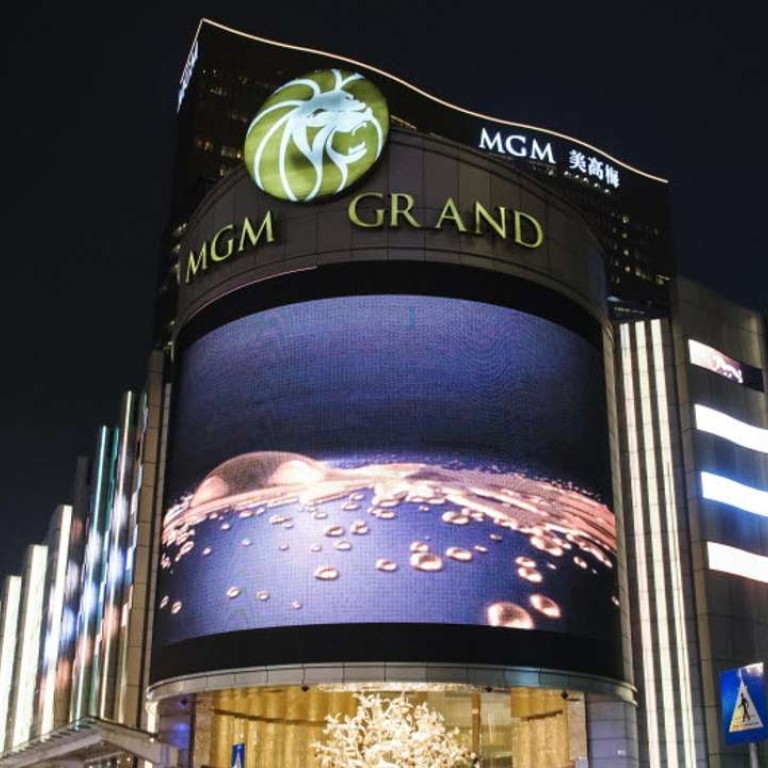
Macau’s first five-year plan marks move away from reliance on gambling revenue
Former Portuguese enclave will be developed as cultural tourism hub, with growth in hotel, retail, wholesale, catering and finance sectors
Macau has formally embraced a long-term policy shift to reduce the economy’s reliance on gaming, according to the city’s first all-encompassing five-year plan.
The city, once a popular destination for mainland gamblers, yesterday set out a target to increase the share of non-gaming elements from the current level of 6.6 per cent out of all gaming-related revenues to 9 per cent by 2020, according to the official document that is traditionally familiar to mainland China.
Sectors such as hotels, wholesale and retail, catering and finance would see steady growth in a city that eclipsed Las Vegas’ glitzy casino industry, analysts say.
“The gaming sector should embark on new development in a new way,” the draft report, which is undergoing a two-month consultation, noted. It said the city would be developed as a cultural tourism hub from now on.
The target was set 21/2 years after President Xi Jinping urged the world’s top gambling hub to accelerate diversification away from the casino industry.
A near two-year tumble in gambling revenue in the former Portuguese enclave continued in March with a 16.3 per cent fall, Reuters reported, as visits by big-spending high rollers became even more infrequent.
Revenue has since hit five-year lows. In March, gambling revenue fell from a year earlier for the 22nd consecutive month to 18 billion patacas, according to government data.
The ambitious five-year plan – which would last longer than Chief Executive Fernando Chui Sai-on’s tenure – also pledges to step up environmental protection by keeping PM2.5 pollution levels in line with World Health Organisation standards.
On political development, the report says Macau – which has no provision of universal suffrage in the Basic Law – will expand the channel for young people to “participate in and comment on” politics by setting up an online platform.
But that is well short of what the marginalised pan-democratic camp in the city has been calling for. Antonio Ng Kuok-cheong, a pro-democracy lawmaker, last week demanded Chui consider setting up an urban council which allows direct election.

